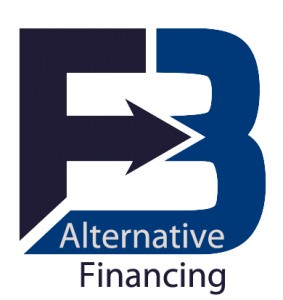Since the banking and economic flop of 2008, lending by traditional banks has dropped considerably for small business loans according to USA Today. Coinciding with that trend, various forms of alternative lending has increased as businesses that get denied for term loans seek other sources of funding.
Yet there remains a lot of confusion out there over these various alternative financing methods simply because business owners and managers don’t know a lot about what these different options are and how they work. Going back 10 or 15 years, there was some truth that financing such as merchant cash advances or accounts receivable factoring were outside the mainstream. Other financing options served certain industries such as freight factoring and manufacturing factoring.
Today, a Number of Businesses Use Factoring Services
Alternative financing such as factoring receivables has become more mainstream as more companies use them each year. Traditional loans for small business will look at your credit score, years in business, tax returns, annual revenue and more before offering you a term loan. You will have to put down assets, properties, equipment or other collateral to secure the loan as well as closely adhere to the contractual obligations to pay the loan back plus a percentage over a certain period of time.
Invoice Factoring Is All About Getting Creative with Collateral
Alternative financing options may or may not require collateral. Asset based financing and inventory funding, for instance, do use collateral but it is used differently than in a traditional small business loan. Though alternative financing can sometimes cost more, this is because there is a greater threshold for risk and you are paying to absorb some of that.
Another key for alternative financing is expediency, and part of what you are paying for is getting your money fast. It is common knowledge to say that banks generally do not provide you with the cash you are seeking in 24-48 hours. This is, however, very possible with alternative lending or invoice factoring.
Don’t Qualify for a Small Business Loan? Join the Club
Confused as being a loan, factoring receivables is an alternative financing method where you can sell your current invoices to a third-party invoice factoring company to get cash quickly rather than wait the usual 30-day payment period to get paid. The factoring company then collects payment from your client and you pay a percentage or fee for the expedited process. Along the lines of short term loans, merchant cash advances, inventory financing and others, factoring accounts receivables is an alternative financing method more and more companies are using to move forward when traditional banks say no.


 Since 1991 I specialize in Invoice Factoring, PO financing and ABL facilities. I currently work internationally with companies in the US and Canada via our internet marketing division. Specialties: Accounts Receivable Factoring and Payroll Funding for Manufacturing, Oil & Gas, Telecommunications, Wholesale Trade Distribution, Staffing and Transportation. I always enjoy helping companies rise to the next level of success.
Since 1991 I specialize in Invoice Factoring, PO financing and ABL facilities. I currently work internationally with companies in the US and Canada via our internet marketing division. Specialties: Accounts Receivable Factoring and Payroll Funding for Manufacturing, Oil & Gas, Telecommunications, Wholesale Trade Distribution, Staffing and Transportation. I always enjoy helping companies rise to the next level of success.

